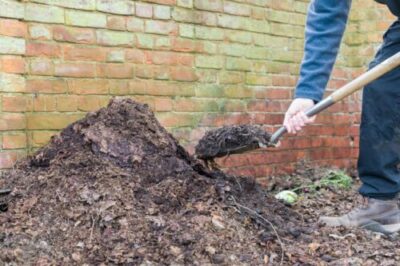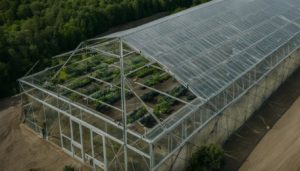Leaves are abundant and seem to get everywhere in the Autumn. They can quickly make your yard look unsightly, and they can be a pain to clean up. They will decompose, but how long does it take leaves to decompose?
Disclosure: This article may contain affiliate links – that means we may receive a commission if you make a purchase after clicking on these links. This is at no extra cost to you.
Leaves naturally decompose in about 6-12 months without any interference from humans.
If you take proper care of during decomposting you can expect them to take 4-6 months.
Read below to learn how to decompose your leaves properly to get better and healthier soil for the next spring season.
How Can You Make Leaves Decompose Faster?
If your leaves are taking too long to decompose there is a trick that allows them to break down more quickly.
You can make leaves decompose faster by sprinkling lime juice on top of your leaf pile along with mixing in some fertilizer.
The acidity in the lime juice will help break down the leaf material more quickly, causing your pile to decompose faster.
Here are a few steps you can use to add the lime juice properly to your pile.
- Chop the leaves into smaller bits by mowing or smashing them
- Place a foot of leaves into a compost bin
- Add ⅓ cup of lime juice and one inch of fertilizer
- Turn the pile every 2-3 weeks
There are other methods you can use to break down your leaf pile as well that don’t involve adding any extra materials.
- The smaller the leaves, the faster they will break down. As you did above, you will want to crush or mow your leaves to get them as small as possible. This will speed up your decomposition process.
- Turning your pile of decomposing leaves will help aerate them and cause the decomposition process to speed up. This process also evens out the moisture between the pile so that all sections decompose evenly.
Following these general rules and adding lime juice will help you produce more fertilizer for your garden and yard to get even better at producing plants and flowers.
Do Leaves Turn into Soil?
Leaves will turn into compost eventually once they are broken down during the decomposition process.
Whole leaves will start to mold as they break down but if the leaves are made into smaller pieces they will eventually break down into compost.
Over the Winter period, your leaves will break down and decompose. As spring starts to come around your leaves will have broken down completely and act as nutrients for the soil to generate healthy plants.
The best method is to create a compost bin or area where the leaves can decompose on their own without disturbance.
You will need to flip the pile every few weeks but the decomposition process will happen on its own.
Are Leaves a Good Fertilizer?
Leaves can make excellent fertilizer if they are chopped down into small sizes before being added to a compost pile.
About 50-80% of tree nutrients from the ground up are deposited into the leaves.
You can take your leaves and add them directly to any part of your lawn or yard. Lay them down by tree and plant beds and the leaves will help with their development and growth.
Of course, you need to make sure they are crushed down into smaller sizes.
The composting leaves can also act as protection during cold days to keep the soil insulated from the cold. This will protect the roots of the plants or trees and yield better results during the spring.
You can put as many composting leaves on your garden beds or tree beds as you’d like. The nutrients will only help your plant material grow and shouldn’t cause any harmful effects as long as you have been composting properly.
It can be important to pile on your leaf fertilizer if you live in more wet climates because the excess rain or snow will wash away some of the soil nutrients.
If you continue to pack on more compost then you will be replacing the nutrients that get washed away, keeping your plants healthy.
Will Leaves Decompose Over Winter?
Leaves will decompose over winter if they are shredded and broken down into smaller pieces.
Otherwise, whole leaves will block the photosynthesis process for your lawn or plant beds and end up ruining your plant materials.
After your leaves have fallen you should gather any excess leaves but leave a small layer on top of your yard. Then, mow the yard one last time and shred the leaves over the entire area.
Leaving this small layer of broken-down leaves is the only way to get them to break down over the winter period.
Whole leaves also reduce water evaporation because there isn’t enough space between the leaf and plant material. This will cause fungus or mold to grow over time and ultimately kill your grass or plants.
Decomposing Leaves
You can decompose your leaves as long as you break them down into small pieces.
These smaller leaves will help add valuable nutrients to your soil and help regenerate its health.
Don’t let your leaves just fall into your yard and expect them to decompose because they will end up damaging your entire area.


